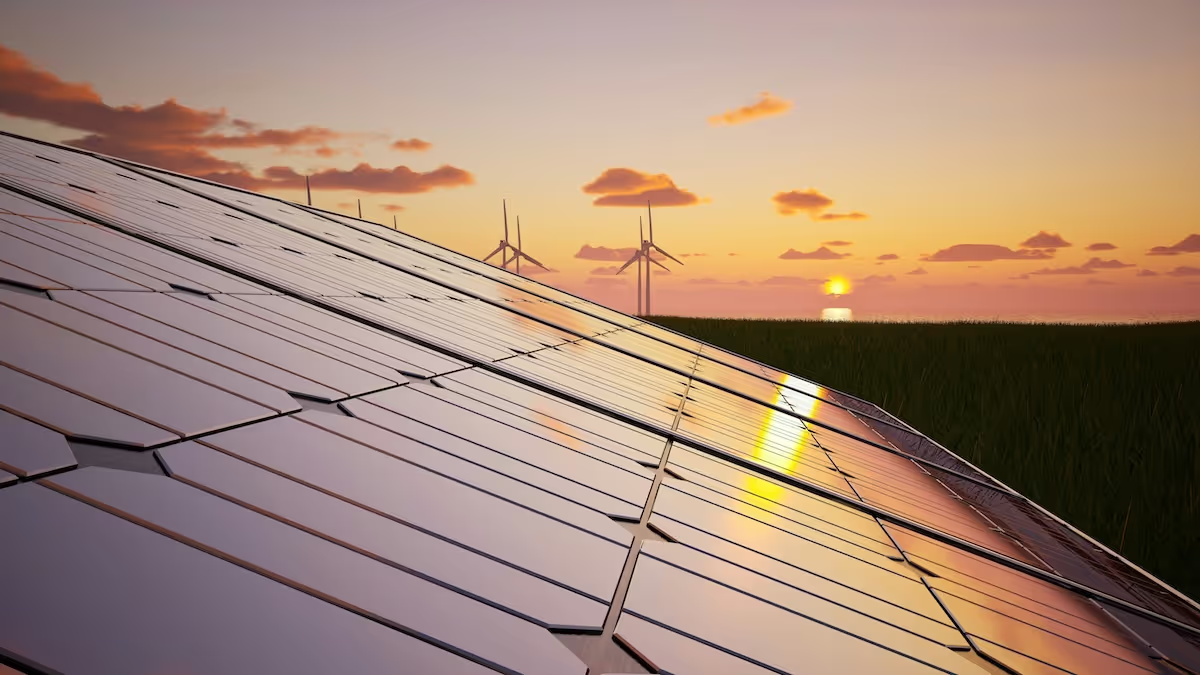Citizen participation: How private investors benefit from the energy revolution

Global climate change requires a sustainable energy supply. Huge investment costs are required for projects such as solar or wind power plants to be implemented. However, the budgets for this are often not available at state and regional level. Innovative ideas are therefore required to overcome one of the biggest challenges of our time. Citizen participation, which creates a win-win situation for the state and citizens, is one useful solution. Find out how private investors can both contribute to achieving climate protection goals and achieve attractive returns.
What are citizen participation?
But what exactly is citizen participation? One thing in advance: There is no exact definition of the term. In German politics, citizen participation generally refers to the participation and involvement of citizens in political communities, in the “shaping of the common”. They can include political decision-making processes as well as financial commitment. So-called financial citizen participation is investment models that enable private individuals to participate in projects with their own capital - for example with regard to renewable energy. This can be done by acquiring shares in solar, wind or hydroelectric plants, which are organized by municipalities, cooperatives or project developers. The aim is to actively involve the local population in the energy transition, to increase their acceptance of new energy projects and, last but not least, to raise capital. In doing so, there is various citizen participation models, such as crowdfunding, direct investments, loans or cooperatives, which are defined depending on the scope of the project.
Why is citizen participation gaining in importance in Germany?
Some political measures have already been taken at federal level to promote citizen participation, but these have not yet been implemented across the board. Since the beginning of 2021, this has allowed EEG (Renewable Energy Act) municipalities and municipalities to benefit financially from wind energy plants and solar parks. With the EEG 2023, this municipal participation was further expanded. Since then, developers of PPA systems transfer income from electricity generation to the local municipality and make appropriate agreements. However, there is still no mandatory participation.
In order to drive development forward, the Federal Government is working on a Citizen Participation Act. Mecklenburg-Western Pomerania is a pioneer here: In this federal state, the Citizens' and Municipalities Participation Act was introduced in 2016. Its basic idea is to oblige project promoters to establish a limited liability company for new wind farms and to offer shares of at least 20 percent of this company to immediate neighbors for participation. A share may cost a maximum of 500 euros. Wind turbines that are subject to approval under the Federal Immission Control Act are covered by the legal regulation. At the end of December 2023, North Rhine-Westphalia also passed a Citizens' Energy Act, which obliges project planners to involve municipalities in the construction of new wind turbines. However, the law does not apply to open-space solar parks.
In Bavaria, the energy transition is still too cumbersome. According to the Bavarian Cooperative Association, renewable energies currently only cover a good half of the electricity demand in the federal state. Out of 1,000 wind turbines to be built by 2030, only 16 new wind turbines were approved in the first half of 2024. In fact, only four plants have been built so far. In order to achieve the goal of climate neutrality by 2040, sustainable, decentralized and largely import-independent energy generation must therefore be ensured. An increase in expansion speed is therefore essential in Bavaria. It is particularly important to strengthen acceptance of the energy transition and to promote regional added value — in Bavaria as well as in other federal states.



